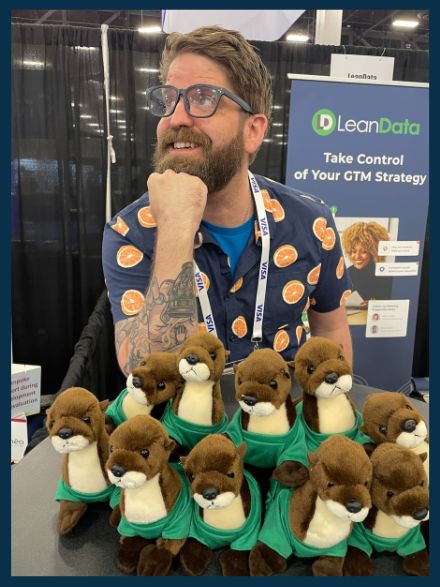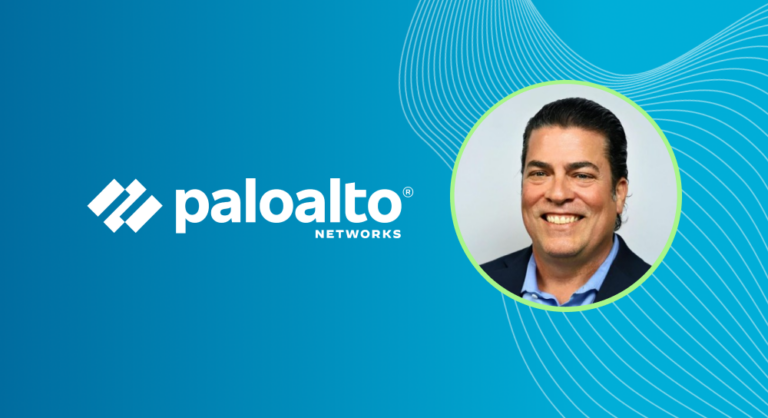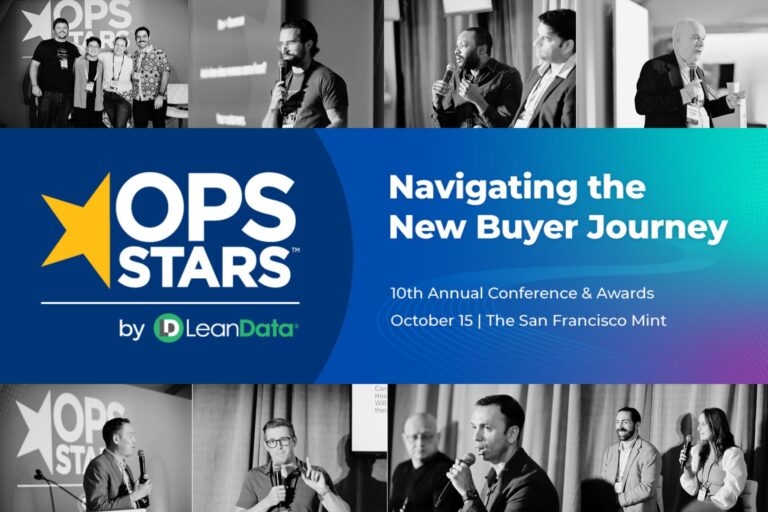The primary reason any organization spends valuable marketing dollars at an industry event is to drive pipeline, and that starts with converting event attendees into leads.
Here are five event lead generation strategies that will transform your next event into tangible business opportunities.
#1 Optimize Pre-Event Marketing Campaigns
Before the event, focus your marketing campaigns on connecting with prospects and customers. Try to build excitement for the event and promote brand awareness.
Plan outreach campaigns in whatever channel best reaches your audience: email, social media, direct mail and others. For social media, use hashtags associated with the event in your posts.
Use the following event marketing tactics to stand out from the other vendors:
- Share “exclusive” content related to event topics.
- Provide regular updates and sneak peeks about the event schedule.
- Send customized messages and tailor the content to attendees’ specific pain points.
- Create an online forum for attendees to network prior to the event.
- Conduct pre-event surveys and polls to support lead qualification and segmentation.
- Offer interactive content such as quizzes (see an example here) that provide insights into attendees’ needs.
Get Attendees to Take Action
The purpose of pre-event marketing campaigns is to motivate your prospects and customers to take the actions that you want. Those actions may include:
- Completing an event registration form
- Setting a meeting with your team
- Requesting an in-person demo of your product
With a strategic pre-event marketing campaign, you can engage potential customers, understand their needs, and create a seamless pathway to converting event attendees into leads.

#2 Incentivize Meetings
Listening to a sales pitch is never top-of-list for event attendees. In fact, it’s often a turn off.
So, if it’s within your budget, include some kind of incentive that will help you rise above the noise and encourage attendees to schedule a meeting or demo.
Since not all prospects share the same interests, offer a few different incentives to determine the best fit for your audience.
If you’re concerned that a prospect is only taking a meeting for a gift, then test and measure the process.
- What is your win rate on incentivized vs. non-incentivized opportunities?
- What was your pipeline conversion rate for incentivized demos?
- How much time did these demos take away from your sales team?
- Did incentivized demos help your team hit goals?
Use caution with demo incentives. Especially in the enterprise and public sectors, companies may have restrictions on employees accepting gifts for any reason.
#3 Make Them Earn Your Swag

Don’t be afraid to ask event goers to earn your swag by filling out a survey, listening to a 90-second pitch, watching your 90-second demo, or actually talking to you about your products and services.
Consider having tiered giveaways for cold prospects versus warm leads, and thank-you swag for customers.
How much swag should you bring? Here’s a general rule of thumb: bring enough items for 30% of the total conference attendees.
Whatever swag you choose, make sure your giveaway is:
- Relevant
- Cost-effective
- Durable
- Shareable
- Creative
Truly, there’s no need to hide your swag in a cardboard box behind a cabinet. Make your giveaways VISIBLE.

#4 Get a Speaking Slot
Another way to turn event attendees into leads is to have one of your employees, a customer, influencer, or industry expert speak on behalf of your organization, on-stage at the event.
Typically, attendee badges are scanned as they enter each session. Then, when the presentation concludes, your organization receives the list of attendees.
Further, in your post-event follow up, you can then reach out with context and say, “Thank you for attending our session last week. Here’s three takeaways you should share with your team…”
However, securing a speaking slot at a trade show event is not always easy. Many speaking slots are reserved for event sponsors. If your budget does not accommodate the required sponsorship level to get a speaking slot, consider submitting a proposal.
Pro Tips on Submitting Speaking Proposals for Events
- Research the event theme to ensure your presentation fits into the agenda.
- Choose a topic that’s timely, relevant, and addresses the event attendees’ pain points.
- Offer a unique perspective that will make your presentation stand out.
- Follow the speaking submission guidelines closely.
- Do NOT submit a speaking proposal that is a sales pitch for your product.
- Use your industry contacts to connect and build relationships with event organizers.
- Maintain an active social media presence.

#5 Nail the Demo
As your team demos your products and services, have them focus on the benefits your specific audience cares about. Questions like “what do you do at [company name]” can help you tailor your messaging to their needs. It may also help weed out attendees who are just looking for swag.
But as with any conversation, don’t emphasize your company or the features of your product. Your demo should focus on your customer’s pain points and the benefits they’ll reap from your product.
- Craft a clear and concise narrative using real-world scenarios and examples.
- Use reliable equipment, a stable internet connection, and have a backup plan in case of technical difficulties.
- Keep your demo interactive by encouraging attendee participation. Make it hands-on, if possible.
- End your demo with a clear call to action like scheduling a meeting, signing up for a free tails, or visiting your website.
Event ROI Doesn’t Happen by Accident
Investing in a well-thought-out plan for converting event attendees into leads is crucial for maximizing event ROI.
It transforms a potentially chaotic and expensive marketing play into a well-orchestrated opportunity to generate high-quality leads, enhance brand awareness, and ultimately drive revenue growth.
For more killer event strategies for marketing, sales, and revenue operations leaders, see LeanData’s Ultimate Event Management Playbook.










